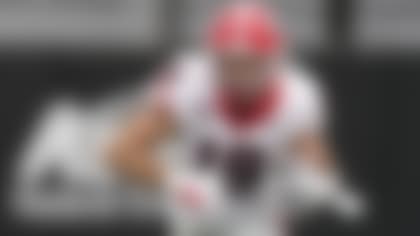The Ed O'Bannon vs. NCAA case has the potential to change college athletics for decades to come once federal judge Claudia Wilken makes her ruling in the landmark case.
The NCAA might be making a few tweaks to how they treat student-athlete names, images and likenesses before the judge can even get that far, though. The organization has eliminated an oft-criticized name-and-likeness release from the set of forms all Division I athletes must sign prior to competition, according to USA Today.
The move might be the latest sign that the NCAA is trying to backtrack from policies that have come under fire in lawsuits and further proof that they are trying to deregulate various aspects related to student-athletes' value.
Typically, players had to sign a release that granted the NCAA (or other third parties such as conferences) the ability to use their name or image to promote various NCAA events such as championships -- sans compensation. Now it appears that athletes across the country won't be putting pen to paper when it comes to the form, known as the "Student-Athlete Statement."
"Usually, the NCAA Student-Athlete Statement does not have many changes from one year to the next," NCAA director of academic and membership affairs Kris Richardson wrote in an e-mail obtained by USA Today. "This year, however, the 'Promotion of NCAA Championships, Events, Activities, or Programs' section has been recommended for removal from the form. ... [T]hat section, unlike the other sections of the NCAA Student-Athlete Statement, is not a mandatory component for purposes of eligibility. Because student-athletes are not required to complete that section in order to maintain eligibility, it has been recommended for removal from the NCAA Student-Athlete Statement, beginning with the 2014-15 version of the form."
Does this mean that Johnny Manziel would have made a few bucks every time CBS flashed his money sign promoting the SEC Championship Game last year? No, other limits remain in place and the only change is that players no longer have to sign the blanket waiver.
It's not a huge change, but taking such a notable section out of the forms student-athletes have to sign will no doubt raise a few questions in the wake of all the O'Bannon testimony wrapping up in court last month.
You can follow Bryan Fischer on Twitter at @BryanDFischer.











